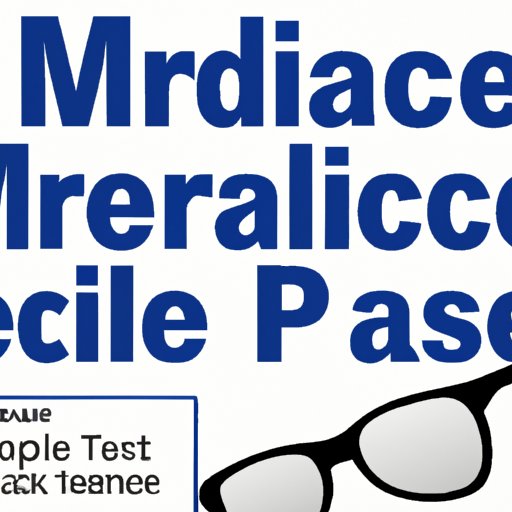Introduction
When it comes to healthcare, many people are familiar with the concept of Medicare. But what exactly is Medicare, and what does it cover when it comes to vision care? This article will provide an in-depth look at how Medicare compares to private insurance when it comes to vision care, as well as outlining the different types of vision care covered by Medicare, the financial implications of each option, and available options for those without private insurance.
What is Medicare?
Medicare is a health insurance program administered by the United States government. It provides health insurance coverage to individuals over the age of 65, as well as certain disabled individuals. The program consists of several parts, including Part A (hospital insurance), Part B (medical insurance), Part C (Medicare Advantage Plans), and Part D (prescription drug coverage).
What Does Medicare Cover for Vision Care?
Medicare does not generally cover routine vision care such as eye exams or eyeglasses. However, it does cover certain types of vision care that are medically necessary, such as treatment for glaucoma, cataracts, and diabetic retinopathy. Medicare also covers some preventive services related to vision care, such as annual glaucoma screenings.
Comparing Medicare Coverage to Private Insurance Coverage
Private health insurance plans can vary widely in terms of what they cover. Many plans include coverage for routine vision care, such as eye exams and eyeglasses, while others may only cover medically necessary vision care. It is important to review the specifics of a plan to determine what type of vision care is covered.

Examining the Financial Implications of Medicare vs. Private Insurance for Vision Care
The cost of vision care can vary depending on whether it is covered by Medicare or private insurance. Medicare typically covers 80% of the cost of medically necessary vision care after meeting the deductible. For those with private insurance, the amount of coverage and out-of-pocket expenses will depend on the specific plan.
Investigating Available Options for Those Who Don’t Have Private Insurance
For those without private insurance, there are still options available for obtaining vision care. These include low-cost clinics, community health centers, and organizations such as Lions Club International, which offer free eye exams and eyeglasses to those in need. Additionally, some states have programs that provide free or reduced-cost vision care, such as California’s Vision for Children Program.
Outlining How to Access Vision Care with Medicare
Those who wish to access vision care through Medicare must first enroll in Parts A and B of the program. They should then contact their local Medicare office or a provider that accepts Medicare to schedule an appointment. During the appointment, the patient will be asked to fill out forms and provide proof of Medicare eligibility.

Describing the Different Types of Vision Care Covered by Medicare
As mentioned previously, Medicare covers certain types of vision care that are deemed to be medically necessary. This includes treatment for glaucoma, cataracts, and diabetic retinopathy, as well as preventive services such as annual glaucoma screenings. However, Medicare does not cover routine vision care such as eye exams or eyeglasses.

Analyzing Pros and Cons of Medicare vs. Private Insurance for Vision Care
When deciding between Medicare and private insurance for vision care, there are several factors to consider. Medicare is often more affordable than private insurance, but it does not cover routine vision care or eyeglasses. Private insurance, on the other hand, may provide better coverage for routine vision care but may also have higher premiums and out-of-pocket costs. Ultimately, it is important to weigh the pros and cons of each option to determine which is best for an individual’s needs.
Conclusion
In conclusion, Medicare does not generally cover routine vision care such as eye exams or eyeglasses. However, it does cover certain types of vision care that are considered to be medically necessary. When deciding between Medicare and private insurance for vision care, it is important to consider the cost, coverage, and availability of each option. There are also options available for those without private insurance, such as low-cost clinics and state-sponsored programs. By taking the time to research and compare these options, individuals can make an informed decision about which option is best for them.
(Note: Is this article not meeting your expectations? Do you have knowledge or insights to share? Unlock new opportunities and expand your reach by joining our authors team. Click Registration to join us and share your expertise with our readers.)
